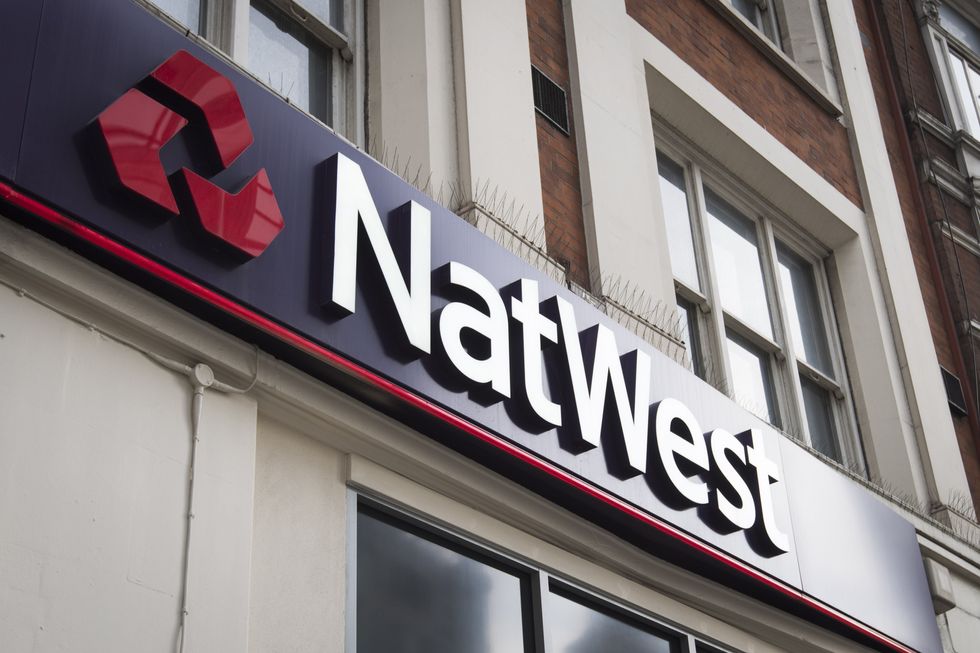October will see the closure of 37 bank branches across the UK, continuing the trend of high street banks disappearing from communities.
The move comes as banks cite increased use of online and mobile banking services as justification for reducing their physical presence.
However, this shift poses challenges for those who rely on in-person banking, particularly in rural areas with poor broadband and mobile coverage.
John Wilson, a senior research writer at Which? said: “There are still plenty of people and small businesses that rely on local banks, who either don’t want to or cannot engage with the digital revolution.”
Lloyds Banking Group will be closing the most branches in October, with 13 Lloyds Bank locations set to shut. Halifax, also part of the Lloyds group, will close nine branches.
RBS, part of the NatWest Group, will close seven branches, while Bank of Scotland will shut five. NatWest itself will close three branches.

NatWest Group has closed the most branches overall since 2015
PA
These closures are part of a larger trend that has seen 6,161 bank and building society branches close since January 2015, according to Which? research.
This represents more than 62 per cent of branches that were open at the start of 2015.
NatWest Group has closed the most branches overall since 2015, with 1,409 shutdowns. Lloyds Banking Group follows closely with 1,216 closures.
Here is the full list of bank branch closures scheduled for October:
Royal Bank of Scotland
- East Kilbride, Scotland, 01/10/2024
- Newbridge, Scotland, 02/10/2024 – no other branches nearby
- Largs, Scotland. 03/10/2024
- Dundee, Scotland, 08/10/2024 – no other branches nearby
- Aberdeen, Scotland, 09/10/2024
- Leith, Scotland, 10/10/2024
- Farnborough, England, 15/10/2024
Halifax
- Ormskirk, England, 14/10/2024
- Witham, England, 14/10/2024
- Heswall, England, 21/10/2024
- Canary Wharf, England, 22/10/2024
- Rugby, England, 23/10/2024
- Harwich, England, 24/10/2024
- Bishop’s Stortford, England, 28/10/2024
- Normanton, England, 30/10/2024 – no other branches nearby
- Sale, England, 30/10/2024
NatWest
- NatWest, Farnborough, England, 15/10/2024
- NatWest, Notting Hill, London, 16/10/2024
- NatWest, South Kensington, England, 17/10/2024
Lloyds
- Worle, England, 15/10/2024 – no other branches nearby
- Torquay, England, 16/10/2024
- Preston, England, 23/10/2024 – no other branches nearby
- Brighouse, England, 28/10/2024
- Formby, England, 28/10/2024
- Heaton, England, 28/10/2024 – no other branches nearby
- March, England, 29/10/2024
- North Walsham, England, 29/10/2024
- Tonypandy, Wales, 29/10/2024 – no other branches nearby
- Crediton, England, 30/10/2024 – no other branches nearby
- Sidcup, England, 31/10/2024
- Witham, England, 31/10/2024
- Kingsbury, England, 31/10/2024
- Callander, Scotland, 30/10/2024 – no other branches nearby
- Campbeltown, Scotland, 29/10/2024
- Portobello, Scotland, 22/10/2024 – no other branches nearby
- Bonnyrigg, Scotland, 16/10/2024 – no other branches nearby
- Mallaig, Scotland, 16/10/2024 – no other branches nearby
Notably, 12 of these closures will leave customers without any other branches nearby, including in Newbridge, Dundee, Bonnyrigg, Mallaig, Preston, Heaton, Tonypandy, Crediton, Normanton, and Callander.
The closure of 12 branches without nearby alternatives poses significant challenges for affected communities.
Rural areas and small towns are particularly vulnerable, as residents may face long journeys to access basic banking services.
This situation is especially problematic for elderly customers and those with limited mobility or access to digital banking. Small businesses that rely on cash transactions and in-person banking services may also struggle.
To address these concerns, major high street banks have agreed to fund shared banking hubs on a voluntary basis. These hubs, operated by Cash Access UK, offer essential banking services and cash access for both personal and business customers.
However, progress has been slow. Of the 150 recommended banking hubs, only 50 have been opened so far. Communities can request assessments for new hubs through Link, the cash machine network.
To mitigate the impact of branch closures, banking hubs are being introduced across the UK. These shared spaces offer basic banking services and cash access for multiple banks. Operated by the Post Office, they feature rotating staff from major high street banks to handle complex issues privately.
The Financial Conduct Authority has implemented new rules requiring banks to ensure adequate cash access. Communities can request new hubs if gaps in cash services are identified.
While these measures aim to maintain banking services in affected areas, concerns remain about the pace of implementation and whether they can fully replace the convenience and personal service of traditional bank branches.